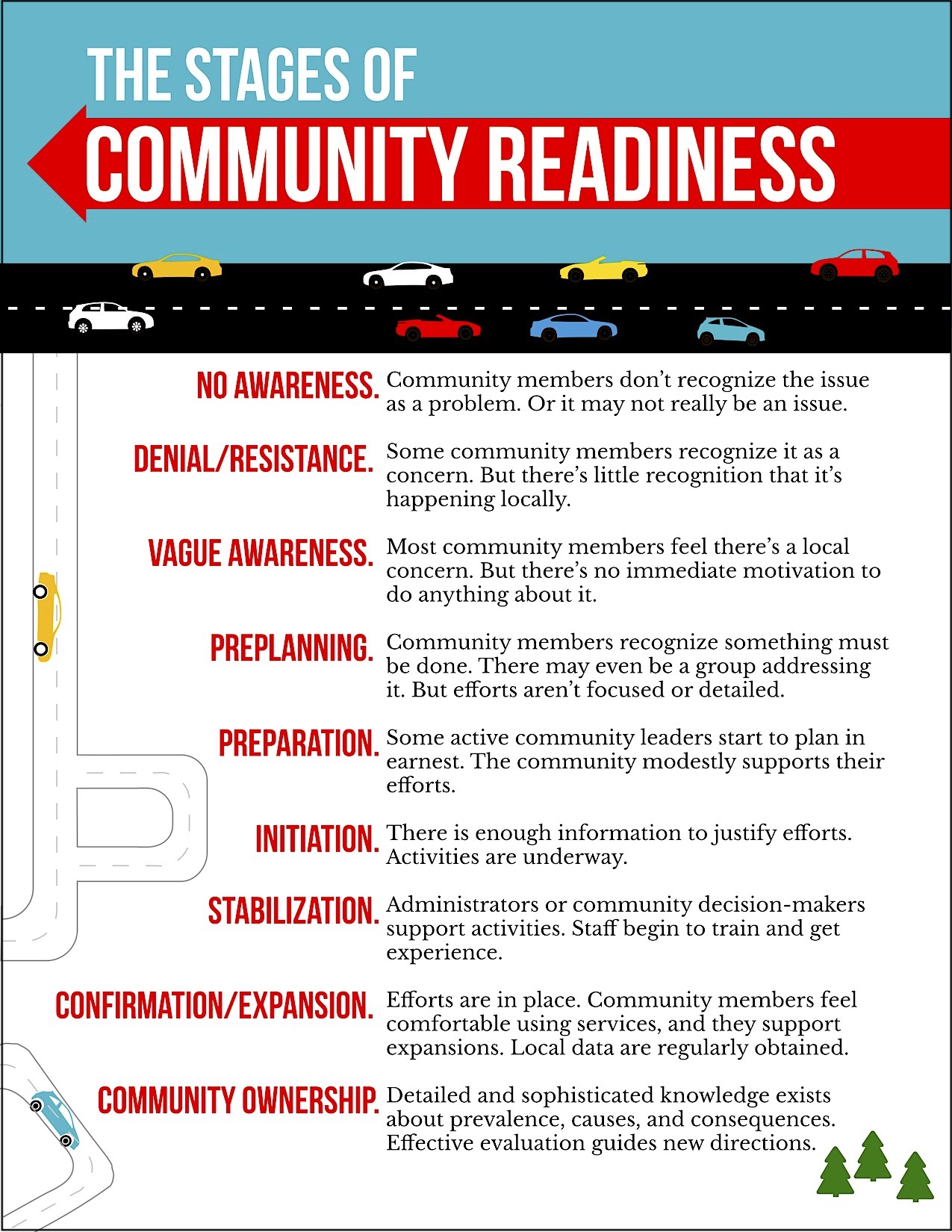Community Readiness Model to Address Tribal Mobility
Leaders from Local Technical Assistance Programs (LTAPs) and Tribal Technical Assistance Programs (TTAPs) recently gathered for a roundtable session to discuss the best ways to identify and address the unique challenges that tribal transportation leaders face.
Tribal governments located in sovereign lands throughout California and the nation have the same scope of responsibilities as municipal transportation departments but often have vastly different resources to perform those tasks.
Hosted as part of this year's 2023 Western NLTAPA Meeting & Tribal Peer Exchange, the roundtable began with an overview of the Community Readiness Model, presented by Dr. Tyler Reeb, Tribal Liaison for the California Local Technical Assistance Program (CALTAP).
“Community Readiness Models have been most commonly used to gauge community understanding and support for addiction prevention and other health and community wellness program implementations,” Reeb said. “But it's also a highly adaptable and useful tool for LTAP and TTAP leaders in identifying critical transportation needs in and adjacent to sovereign tribal lands.”
A community readiness model measures the attitudes, knowledge, resources, and efforts of a community to assess its readiness to address an issue like workforce training and development that support zero-emission vehicles (ZEV), ZEV infrastructure, and ZEV-related commercial technologies in California.
The community readiness model assesses readiness across five key dimensions:
- Community Knowledge of the Issue
- Community Knowledge of Efforts
- Community Climate
- Community Leadership
- Community Resources
Reeb was joined by three panelists to discuss a range of LTAP/TTAP issues associated with community readiness models:
- Ron Hall, Tribal Transportation Program Manager, Upper Great Plains Transportation Institute, NDSU, and Co-Director, Northern TTAP
- Paula Zamudio, Sr Equity Planner & Tribal Liaison, San Diego Association of Governments
- Cameron Ishaq, Operations Manager, National Center for Rural Road Safety
"The community readiness approach provides a framework to better identify and address tribal transportation research issues and workforce needs in a tribal self-determination model," said Hall.
For more information on the tribal self-determination model, check-out the related podcast "Equity & Mobility in Indian Country".

Tyler Reeb, PhD
With his extensive experience in tribal transportation workforce development, Dr. Reeb helps to coordinate CALTAP mission objectives and outreach and engagement activities with California’s regional tribal leadership, community members, and the new Western TTAP.
-0.jpg)